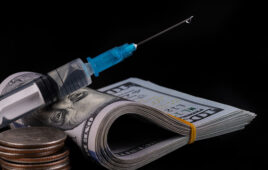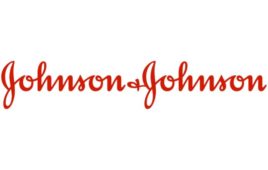The total of pharmaceutical revenue worldwide reached nearly one trillion U.S. dollars by the end of 2014. In such a behemoth of an industry and with millions of pharmaceutical products being manufactured in and marketed to hundreds of countries, it is inevitable that not all products will meet the complex regulatory and legislative standards set forth by the pharmaceutical industry. Some will need to be recalled from the market and the level of preparedness by a company going through a crisis can make or break its ongoing success and vitality. Reacting quickly and being proactive with messaging is possible with the appropriate preparation.
Fail to Prepare, Prepare to Fail
Being prepared for a recall is the best safety net for your stakeholders. Product recall processes are a board matter. They should be incorporated into operational strategy, updated, and practiced frequently. New employees should be trained in them while employees who leave should be debriefed about risks. From new manufacturing processes and suppliers to new formulas and brand new drugs, every aspect of a pharmaceutical company must be audited for risks. Recall processes should be checked for applicability to all situations and communicated to all individuals involved.
Preparing for a Recall
Just as schools conduct fire drills and hospitals conduct disaster preparedness drills, pharmaceutical companies need to be prepared for the worst. Consider these five ways to prepare your company for a pharmaceutical recall.
5. Mock Recalls
Practice, practice, practice. Mock recalls are a fundamental part of the process for ensuring a smooth product recall. They need to be frequent (every three to six months), with all members of the task force knowing their role in the recall implicitly.
4. Task Force
Every recall is managed by an internal task force. Employees come and go all the time, so make sure the team meets regularly to review new legislations in your sector and practice mock recalls frequently. Have a dedicated phone line to the team for ease of communications.
3. Communications
Don’t write a press release at the eleventh hour in the midst of a crisis. Your communications to media and consumers has to be well thought and approved by legal. Have a number of templates for different scenarios ready that allows you to issue the right one at the right time.
2. Confidentiality
Know who you can trust with sensitive information. Recalls are expensive and you don’t need the added stress of an attack against your brand. Know your partners and suppliers and involve them in your mock recalls so that they follow your company’s protocols.
1. Appoint your recall partner ahead of a recall
Closing the gate after the horse has bolted. When you are up against a crisis, you don’t have the luxury to get to know your recall partner. How they operate will be a huge factor in the success of your recall. Meet them when you are not in crisis mode. Understand how they reach out to consumers and what security measures they have in place. When a crisis hits, you will want them at the touch of a button ready to jump into action.
Developing a Recall Plan
The top five ways to be prepared for a recall lay the foundation for a comprehensive and thorough recall plan. The plan should clearly outline all strategies and messaging. Here we get into more detail:
- Who does what: Define terms and assign roles and responsibilities.
- Develop a recall flowchart: Work with your recall team to plan the management of complaints, responses, recompense, and logistics.
- Announce the roles and responsibilities of the recall team: Managers from across the company will be involved in the recall team, from operations, production, purchasing, customer service, and marketing, to finance.
- Evaluate the complaint: When complaints start to come in, how do you judge how serious the situation is? Identify the severity, respond to the complaint and seek advice from your federal agency.
- Messaging: Prepare a variety of messages for each recall class and divide them according to customer, stakeholders, and media. Have templates on hand with a choice of messages, which can easily be modified in a crisis.
- Identify the product locations: It’s the company’s responsibility to know the quantities in production, distribution, and which consumers have them and where they are.
- Notify all affected parties: During a recall it’s important to follow the appropriate regulatory agencies and procedures in a timely manner, typically in this order: agency, distribution chain, and then consumer.
- Commence the recall: The recall process should follow these stages:
- Remove: All efforts made to remove the product from the market place
- Control: Ensuring recalled products do not re-enter commerce
- Dispose: Follow agency or other protocols for disposing of the item
- Measure recall effectiveness: Check all appropriate actions have been taken and all parties notified, and whether consumer feedback is neutral, negative, or positive
- Recall termination: Only once all regulatory parties have authorized it
- Mock Recall: Should be conducted, practiced, and modified on an annual basis, as follows:
- Choose a product for the mock recall
- Trace the product from the source to the finished product
- Verify communication systems: Emails, address, telephone numbers
- Document each mock recall and modify the strategy to correct any aspects not factored in
Conclusion
With the ever increasing consumer protection legislation, being prepared for a product recall should be part of your company strategy and communicated to all stakeholders. Your aim is to protect consumers from harm and to protect your brand, while limiting the financial damage of a recall.
Even companies with the best safety records can find themselves in a recall situation. Companies must ensure the best outcome for customers and stakeholders while protecting their brand. When handled well, with the right messages, recalls can improve a brand or company image. But, if a recall is handled badly, the damage can be fatal.
Overall, do not wait until the highly stressful and critical situation of a recall to appoint a recall partner. This company will be your voice, contacting your customers with bad news and offering solutions. Your recall partner must be familiar with your contact strategy and work closely with you to make a bad situation as painless as possible.
About Marketpoint Recall
Marketpoint Recall is an international recall agency with locations around the globe. It handles many languages across all time zones and has carried out national and international recalls for companies in many sectors. Clients have benefited from their speed of service for the past 35 years.
To find out more about Marketpoint Recall, visit www.marketpointrecall.com for more information and to download further information about managing product recalls.
Follow us on Twitter and Facebook for updates on the latest pharmaceutical and biopharmaceutical manufacturing news!




